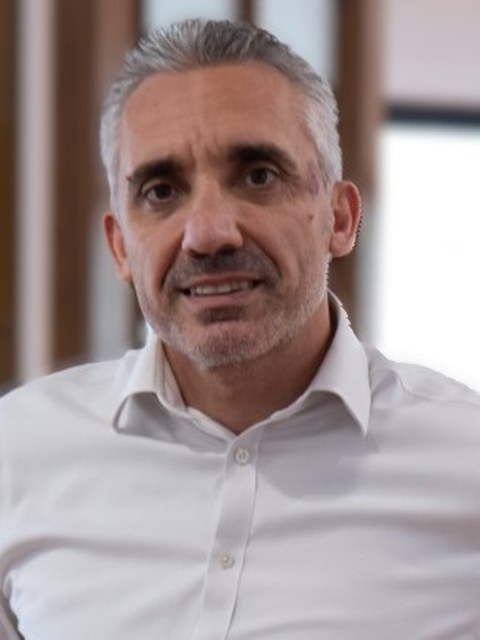Francesco Bonaccorso
2D Materials in Water Applications Symposium
Dresden, Germany 11 & 12 Apr 2024
Title: 2D materials-based membranes for water purification and energy applications
First and last name: Francesco Bonaccorso
Affiliation: BeDimensional S.p.A.
Via Lungotorrente secca 30R, 16163 Genova, Italy
Short Biography:
Francesco Bonaccorso is the Scientific Director of BeDimensional SpA and visiting Scientist at the Istituto Italiano di Tecnologia. He gained the PhD from the University of Messina. In 2009 he was awarded a Royal Society Newton International Fellowship at Cambridge University, and elected to a Research Fellowship at Hughes Hall, Cambridge, where he also obtained a MA. He was the Deputy of the workpackage Innovation of the European Graphene Flagship, being responsible in defining the Science&Technology roadmap for the project. He is author of 16 patents and more than 200 publications that have been cited more than 39500 times. He was featured as 2016 Emerging Investigator by J. Mater. Chem. A and in 2019 by ChemPlusChem. In 2018 he was recognized as Highly cited Scientist by Clarivate Analytics. In 2019 he received the Magister Peloritanus by Accademia Peloritana dei Pericolanti and ExAllievi Eccellenti by the University of Messina. He co-founded Cambridge Graphene Ltd and BeDimensional SpA.
Abstract:
We will provide an overview of the BeDimensional strategy in the development of industrial production processes of 2D materials.[1-3] This is a key requirement for their widespread use in several application areas,[1-8] providing a balance between ease of fabrication and final product quality. In this context, we will show the effectiveness of the production of 2D materials by wet-jet milling[3] and the route towards future Industrial scale up, maintaining the high-quality production.
Afterward, we will provide a brief overview on engineered few-layer graphene membranes. In this context, we will show how the production of few-layer graphene in liquid phase by wet-jet milling[3] represents a simple and cost-effective pathway towards the development of graphene-based membranes for water purification [9,10] and energy applications. We will demonstrate that the quality of exfoliation is a crucial factor for addressing the few-layer graphene supporting the separation capability of the host membranes designed for water desalination [9] and metal ions rejection.[10]
[1] F. Bonaccorso, et. al., Adv. Mater. 28 (2016) 6136. [2] F. Bonaccorso, et al., Materials Today, 15 (2012) 564. [3] A. E. Del Rio Castillo et. al., Mater. Horiz. 5 (2018) 890. [4] E. Pomerantseva, et al., Science 366 (2019) eaan8285. [5] G. Iannaccone, et al., Nature Nanotech 13 (2018) 183. [6] F. Bonaccorso, et. al., Science, 347 (2015) 1246501. [7] S. Pescetelli et al., Nature Energy 7 (2022) 597. [8] L. Najafi et al., Adv. Ener. Mater. 8 (2018) 1703212. [9] M. Frappa et al., Nanoscale Adv., 2 (2020) 472. [10] L. Najafi et al., Mater. Adv., 1 (2020) 387.
This project has received funding from the European Union’s DIAMOND Horizon Europe research and innovation program under Grant Agreement No. 101084124.

